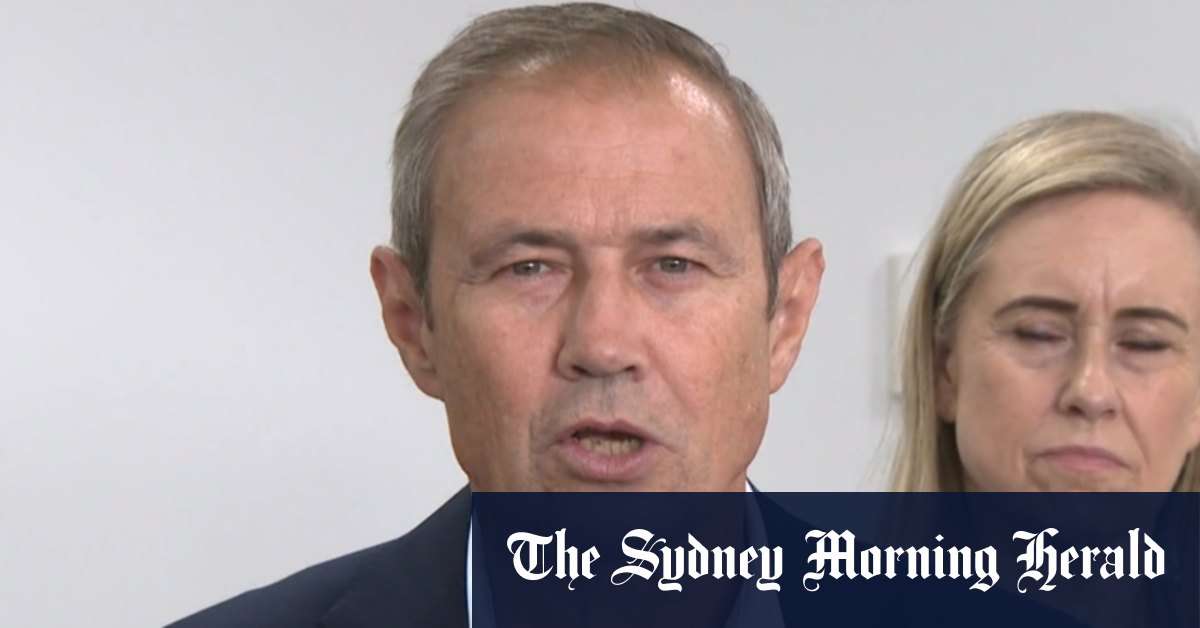Australia
WA Liberal leader dodges question on abortion

Abortion Becomes a Flashpoint in Western Australian Election
As the Western Australian (WA) state election approaches, abortion has emerged as a pivotal issue, sparking intense debate and scrutiny among political leaders. The Western Australian Liberal Party, led by its leader, has found itself at the center of this controversy. A recent incident has drawn attention to the party’s stance on abortion, with the leader being accused of evading direct questions about one of her candidate’s views on a woman’s right to choose. This avoidance has led to criticism from opponents and advocacy groups, who argue that clarity on such a significant issue is essential, especially as the election campaign heats up.
The Controversy Surrounding the Liberal Leader’s Response
The controversy began when the WA Liberal leader was asked during a public forum to address the views of one of her candidates regarding abortion. The candidate in question had reportedly expressed opinions that some considered inconsistent with the principles of reproductive rights. When pressed for a clear response, the Liberal leader sidestepped the question, stating that she would not comment on the matter. This evasion did little to quell the concerns of critics, who interpreted her silence as an attempt to avoid political backlash or to maintain unity within her party.
Critics argue that the leader’s refusal to address the issue directly undermines the transparency and accountability expected of political leaders, particularly on a matter as personal and sensitive as abortion. Advocates for reproductive rights have long emphasized the importance of political leaders taking a clear and unambiguous stance on abortion, as it directly impacts the lives and freedoms of women. The Liberal leader’s dodge has, therefore, been perceived as a strategic maneuver to avoid alienating either side of the debate, rather than a genuine engagement with the issue.
The Significance of Abortion as an Election Issue
Abortion is an issue that resonates deeply with many voters, and its prominence in the WA election campaign highlights the broader tension between individual freedoms and government intervention in personal choices. In Western Australia, where the debate over abortion rights has been ongoing, the Liberal Party’s stance is under particular scrutiny. The party’s history on the issue has been mixed, with some members advocating for greater restrictions on abortion while others support a woman’s right to choose.
The injection of abortion into the election campaign has the potential to sway voters, particularly women, who are disproportionately affected by restrictions on reproductive rights. Political parties are well aware of the sensitivity of the issue, and candidates often walk a fine line between appealing to their base and maintaining broader voter support. The Liberal leader’s evasion of the question may reflect an attempt to navigate this treacherous terrain, but it risks alienating voters who value clarity and forthrightness from their leaders.
Implications for the Liberal Party’s Electoral Strategy
The Liberal leader’s handling of the abortion issue has raised questions about the party’s broader electoral strategy. By avoiding a direct response, she may be attempting to prevent the issue from becoming a liability for her campaign, particularly in a state where public opinion on abortion is divided. However, this strategy carries risks, as voters may interpret her evasiveness as a lack of conviction or leadership.
Moreover, the controversy has provided an opening for the ruling Labor Party and other political opponents to attack the Liberals on the issue. Labor has historically positioned itself as a champion of reproductive rights, and the current debate has allowed them to further solidify this image. The Liberal Party’s failure to address the issue forthrightly may cost them votes among progressives and centrists who prioritize women’s rights and bodily autonomy.
The Broader Political Landscape and Voter Sentiment
The debate over abortion in Western Australia reflects the broader cultural and political shifts occurring across the country. In recent years, there has been a growing push for greater access to reproductive healthcare, driven in part by the efforts of advocacy groups and the personal stories of women who have faced barriers to accessing abortion services. At the same time, there remains a vocal minority opposed to abortion on ethical and moral grounds.
The Liberals’ handling of this issue will likely be closely watched by voters, particularly women, who are eager to see how political leaders will address their concerns. The leader’s evasion of the question has the potential to alienate swing voters who are looking for candidates who will take a firm stance on important issues. Conversely, it may also shore up support among the party’s conservative base, which has long been a key constituency for the Liberals.
Conclusion: The Need for Clarity and Leadership
As the WA election campaign progresses, the issue of abortion will likely remain a point of contention, with the Liberal leader’s response coming under increasing scrutiny. While political leaders often face difficult decisions about how to address contentious issues, the importance of abortion rights demands clarity and courage. By failing to provide a direct and unambiguous response, the Liberal leader risks being seen as out of touch with the concerns of many voters, particularly women, who are looking for leaders who will champion their rights and freedoms.
The broader implications of this controversy extend beyond the current election cycle. It highlights the ongoing struggle to balance political pragmatism with moral leadership, and the challenges of navigating issues that deeply divide public opinion. As the debate over abortion continues to unfold, the Liberal leader’s response—or lack thereof—will be closely monitored, not only by voters but also by political analysts and historians, as a test of her leadership and her party’s commitment to the values of equality and justice.